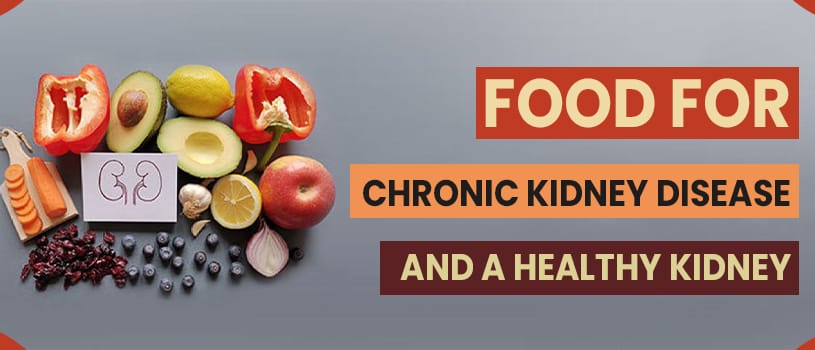When you have chronic renal disease, you may need to make dietary changes (CKD). Limiting foods that contain high sodium, phosphorous, potassium, and consuming adequate are examples of these modifications. If your kidney disease worsens, you may need to change your diet even more. When you have CKD, the goal of this diet is to maintain a healthy balance of electrolytes, minerals, and fluids in your body.
To assist you with your kidney disease diet, ask your health care provider to recommend you to a certified dietitian. Kidney diets are the specialty of some dietitians. Your dietician can also assist you in developing a diet that meets your other health requirements. To be healthy and avoid the destruction of body tissue, you must consume enough calories each day. Inquire with your doctor and dietician about your optimal weight. To make sure you’re on track, weigh yourself every morning.
Ayurvedic treatment for chronic kidney disease helps cure the disease with ease and effectiveness. In the treatment, it entirely believes in curing it with natural herbs. It also focuses on doing exercise, and diet maintenance are one of the key areas of treatment for CKD in Ayurveda. Managing the diet with proper recommendations surely will help end the disease early and effectively. There are some dietary recommendations given below-
CARBOHYDRATES
These foods are a good source of energy if you don’t mind eating carbohydrates.
- Energy, fiber, minerals, and vitamins are all found in fruits, slices of bread, grains, and vegetables.
- Hard candies, sugar, honey, and jelly are all good choices. You can consume high-calorie desserts like pies, cakes, or cookies if you need to, as long as you avoid sweets that contain dairy, chocolate, almonds, or bananas.
FATS
Fats can be a beneficial calorie source. To safeguard your heart health, consume monounsaturated and polyunsaturated fats (olive oil, canola oil, safflower oil). Consult your doctor or a dietician about fats and cholesterol, which might raise your risk of heart disease.
PROTEIN
Based on your weight, stage of disease, muscle mass, and other considerations, your provider or dietician may recommend a lower-protein diet. However, you will still want sufficient protein, so consult with your doctor to determine the best diet for you.
CALCIUM AND PHOSPHOROUS
Calcium and phosphorus levels will be monitored on a regular basis. Phosphorus levels in the blood might become excessively high even in the early stages of CKD. This can lead to:
- Calcium deficiency – This causes your body to remove calcium from your bones, making them weaker and more prone to breaking.
- Because dairy foods are high in phosphorus, you should limit your intake. Milk, yogurt, and cheese are all examples of dairy products. Phosphorus is less abundant in several dairy foods like butter, cream, etc.
FLUIDS
You do not need to limit your fluid intake in the early stages of renal failure. Your dialysis nurse and provider will tell you how much water you should drink each day. Keep track of meals like soups, fruit-flavored gelatin, fruit-flavored ice pops, ice cream, grapes, melons, lettuce, tomatoes, and celery that are high in water. Use smaller cups or glasses, then after you’ve completed your cup, flip it over.
SALT OR SODIUM
High blood pressure can be controlled by reducing sodium in your diet. It also prevents you from being thirsty and your body from retaining excess fluid.
POTASSIUM
Potassium levels in the blood should be normal to maintain your heart beating regularly. When the kidneys aren’t working properly, though, too much potassium can build up. It is possible that you’ll develop dangerous heart rhythms, which could lead to death. Because fruits and vegetables are high in potassium, they should be avoided in order to maintain a healthy heart.
FRUITS AND VEGETABLES
Eat fruits like peaches, grapes, pears, apples, plums, berries, watermelon, cabbage, broccoli, carrots, eggplant, beans, and peppers, as well as vegetables like cabbage, broccoli, carrots, eggplant, beans, and peppers.
IRON
Anemia is common in people with advanced kidney failure, and they require more iron. Many foods are high in iron (chicken, kidney beans, and iron-fortified cereals). Because of your renal condition, talk to your doctor or a nutritionist about which iron-rich foods you can eat.
Simple and effective Ayurvedic treatment for chronic kidney disease-
It is considered that natural herbs are the best way to treat it. It also emphasizes the need for exercise and nutrition management in Ayurvedic CKD treatment. Dietary management combined with sound counsel will surely aid in the early and successful treatment of the disease.

